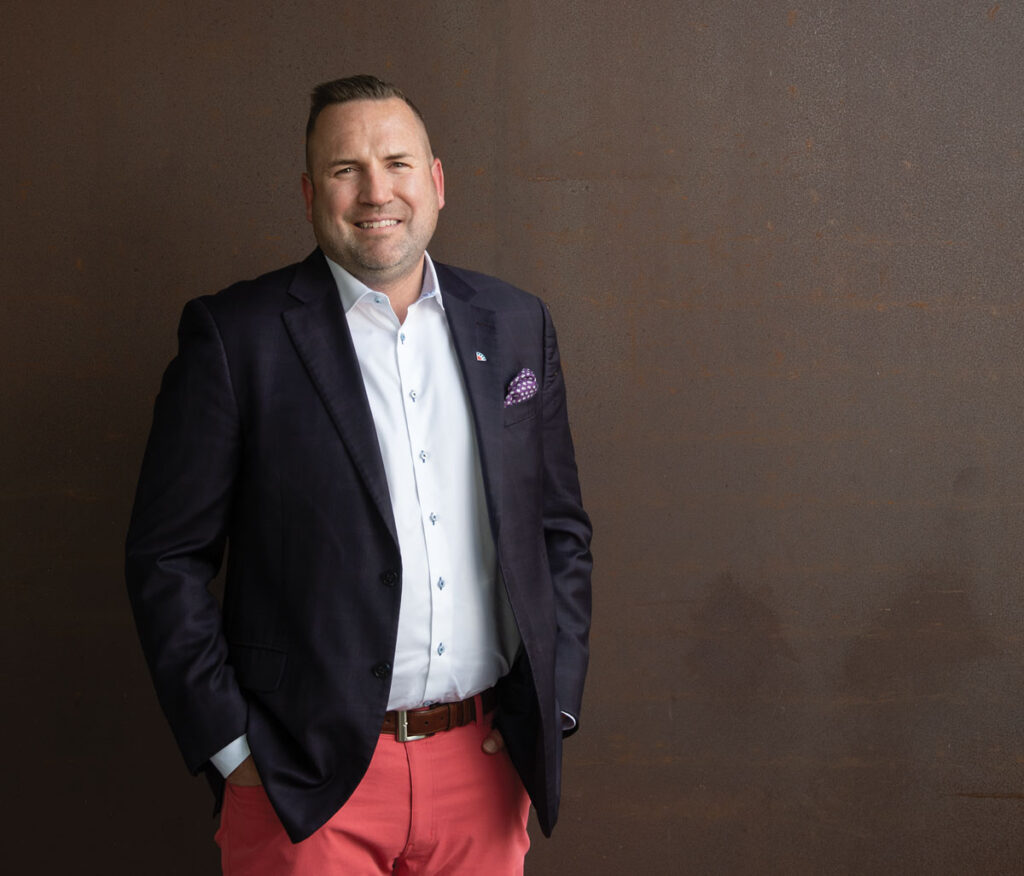Principal International ‘punched way above its weight’ in early days
As he retires, Sorensen reflects on the growth of global businesses

Twelve years ago, Norman Sorensen and his colleagues at Principal International Inc. felt strongly that Latin America and Asia would be the “tigers” of global growth into the next century.
Their insight gave Principal an early seat at the table within some of the world’s fastest-growing economies. But Sorensen, who retired as Principal International’s chairman at the end of February, isn’t one to brag.
“The only real bright economic spots are the spots we chose 12 years ago, so we were very lucky,” he said. “Three-quarters of what we did was pretty deliberate, and a quarter was pure luck.”
A facility for languages
It was late 1998 when Principal Financial Group Inc. hired Sorensen, whose resume includes executive stints with American International Group Inc., Citigroup Inc. and American Express Co., to expand Principal’s international division, which had been formed in 1990.
“Assets under management were less than $1 billion 12 years ago,” Sorensen said. “We’re now pushing $60 billion, so the growth has been spectacular.” Today, Principal International – Principal Financial Group Inc.’s investment and asset management business outside the United States – operates in 10 Latin American and Asian markets through wholly owned subsidiaries and joint ventures. Principal International’s assets under management last year increased by 15 percent from 2010, ending 2011 at $52.8 billion. To put that figure in perspective, that’s about 16 percent of Principal’s total assets under management of $335 billion. Last year, Principal International reported $154 million in net income.
More important than the growth is Principal International’s strong market position in each of the markets it has chosen. The company is among the 10 largest players in several markets, including Brazil, Chile, Malaysia, Hong Kong and Mexico. “The competition is behind; that’s quite an advantage,” Sorensen said.
Sorensen, 66, was born and raised in Montevideo, Uruguay, and is fluent in five languages. In addition to his native Spanish, he learned Portugese during travels as a student to Brazil. Later he honed his English while attending the foreign cadet program of the U.S. Air Force Academy in Colorado Springs, where he earned a degree in chemical engineering. He was the first Uraguayan to graduate from a U.S. military academy, but his country’s air force didn’t have a position for him in the field he had chosen.
Moving to Germany, he set out to become a chemist, but couldn’t get hired because he could not yet speak German, a language he later picked up, along with French. His first job was with American Express in Germany, where he started out selling traveler’s checks to banks.
Outside of five years that he lived in Miami while working for Citibank, Sorensen spent much of his 37-year career traveling overseas, where he put his linguistic skills to good use. “I have a little bit of a facility for languages, you might say. Unfortunately I don’t speak two of the most important languages – Mandarin and Hindi,” he said.
‘Gray Dawn’
Sorensen said forming key partnerships was critically important to Principal’s strategy of breaking into its targeted markets to sell pension funds, asset management services and mutual funds.
“We felt, ‘we’re not large enough to do it on our own,’” Sorensen said, so Principal sought major financial partners such as Banco do Brasil, China Construction Bank and Punjab National Bank in India. “We know those businesses, but they have the distribution channels,” he said. “We punched way above our weight with those partners.”
A book he read at the time, “Gray Dawn” by Blackstone Group co-founder Pete Peterson, pointed him toward the potential of emerging economies. “It was about aging societies (Europe and North America) and how they frankly would come to a point where unfunded liabilities were going to become so large that we would no longer be able to deal with them,” he said. “That book opened my eyes to what we should be doing.”
Not surprisingly, the bulk of Principal International’s employment growth has been overseas. When Sorensen started at the company, Principal International had fewer than 500 employees outside the United States, along with a small group of consultants based in Des Moines.
Today, Principal International has more than 3,000 employees overseas, most of them hired from their local countries, as well as about 50 people in Des Moines.
“We’ve had a number of our domestic employees involved in the international business, and several of our top executives are on the boards of our international businesses,” Sorensen said. For instance, Principal’s chairman, president and CEO, Larry Zimpleman, recently finished a term on the board of Brasilprev Seguros e Previdencia, Principal’s joint venture with Banco do Brasil.
Sorensen said his previous experiences in dealing with other cultures while working for other Fortune 500 companies have come in handy. Still, “dealing with the Chinese culture where we knew nothing about it was quite interesting,” he said with a laugh.
Opening up China
Though the majority of the investment products Principal International offers are designed for residents of the countries in which they’re sold, such as Chilean retirement savings accounts for Chileans, there’s a growing niche in providing investments in these countries to foreign customers. For instance, Principal International recently launched a fund for Japanese investors in Indonesian securities, and a Brazilian equities fund for U.S. investors.
“About 10 percent of our business today comes from investments which we offer in these countries to U.S., Japanese or European investors,” Sorensen said.
A recent development will allow Principal to begin selling Chinese investment products to foreign investors. The company recently obtained approval to launch a qualified foreign institutional investor (QFII) fund, which allows its clients to invest in China.
In this arrangement, foreign investors intending to enter the Chinese securities market must meet certain qualifications for getting the approval from Chinese authorities, transfer in a required amount of foreign currency and convert it into local currency, and invest in a local securities market through a special account under strict oversight.
“It’s expected to grow very quickly,” Sorensen said.
Though Principal strategically chose to bypass Europe for faster-growing economies, Sorensen said he didn’t anticipate the financial crisis that continues to unfold there.
“My personal view is that Europe has a lot more to lose than to gain if the euro breaks up,” he said. “There are a lot of aligned interests inside and outside of Europe to have the euro intact. I think the euro will stick together.”










